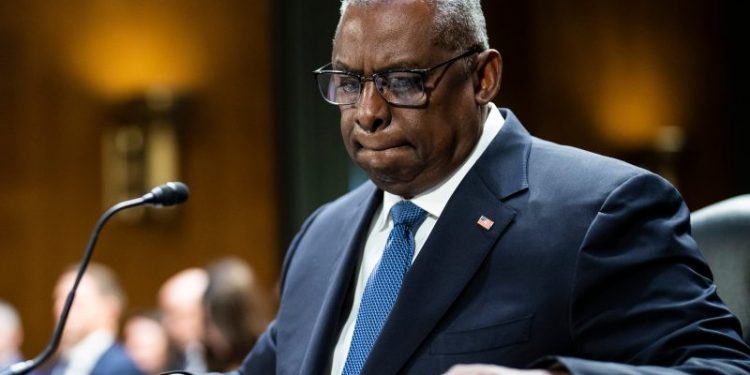Defense Chief Austin Asked to Testify before Congress on Hospital Secrecy
Introduction:
In recent months, concerns have been raised about the level of secrecy surrounding U.S. military hospitals and the impact it may have on the well-being of service members. As a response to these concerns, Defense Secretary Lloyd Austin has been asked to testify before Congress to shed light on this issue. This article will discuss the importance of transparency in military healthcare, the potential consequences of hospital secrecy, and the need for clear guidelines to protect the physical and mental well-being of service members.
The Importance of Transparency in Military Healthcare:
Transparency is a fundamental principle that underpins any efficient and accountable healthcare system. In military healthcare, transparency is crucial not only for the well-being of service members but also for fostering trust and confidence in the system. It allows for proper oversight, accountability, and identification of any systemic issues that may arise within military hospitals.
Potential Consequences of Hospital Secrecy:
The lack of transparency in the military healthcare system can have detrimental consequences. Hidden or classified medical information can prevent service members from accessing important details about their own health conditions, leading to a lack of informed decision-making. Moreover, it can hinder the ability of military families to support their loved ones adequately during times of illness or injury.
Furthermore, hospital secrecy can create a breeding ground for misconduct and malpractice. Without public scrutiny or proper oversight, there is a risk of individuals abusing their positions or covering up mistakes. This undermines the integrity of the healthcare system and jeopardizes the physical and mental well-being of service members.
The Need for Clear Guidelines:
To address the challenges posed by hospital secrecy, it is essential to establish clear guidelines that prioritize transparency and accountability. This includes ensuring that service members have access to their own medical records, except in cases where national security concerns genuinely necessitate withholding information. It also entails providing families with the necessary information and resources to support their loved ones effectively.
Additionally, there must be robust mechanisms in place to ensure that any allegations of misconduct or malpractice within military hospitals are thoroughly investigated. This involves a cohesive effort between the Department of Defense, Congress, and independent oversight bodies to identify any shortcomings and implement necessary reforms.
Conclusion:
The call for Defense Secretary Lloyd Austin to testify before Congress on hospital secrecy is a positive step towards addressing this critical issue. It reflects the growing recognition that transparency is vital to ensuring the well-being of service members and upholding the integrity of the military healthcare system.
Moving forward, a concerted effort must be made to establish clear guidelines that prioritize transparency, accountability, and the protection of service member’s physical and mental well-being. By doing so, we can create a military healthcare system that fosters trust, provides proper oversight, and ensures that service members receive the high-quality care they deserve.
















